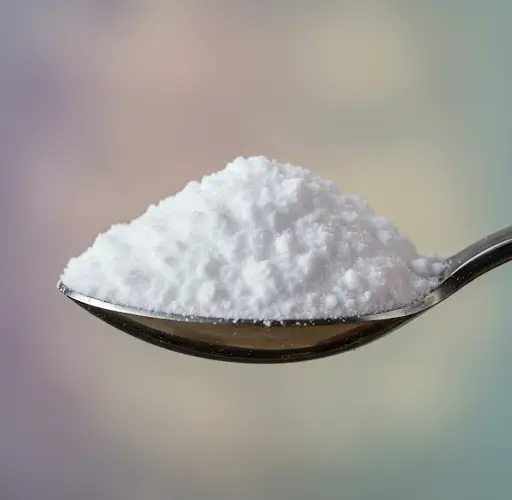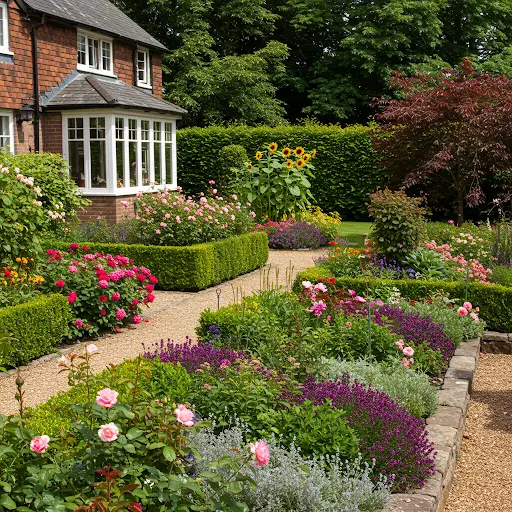The Secret Power of Baking Soda in Your Garden: Natural Solutions for Healthier Plants
Baking soda—also known as sodium bicarbonate—is a common household ingredient found in most kitchens. It’s inexpensive, edible, biodegradable, and completely non-toxic, which makes it a surprisingly powerful tool in gardening as well. For gardeners who prefer organic and eco-friendly solutions, baking soda offers a wide range of benefits for plant health, pest control, and soil improvement.
Though it’s best known for its uses in cooking and cleaning, baking soda can also play an important role in supporting a healthy and thriving garden. Whether you’re battling pests, combating mold, or trying to grow tastier vegetables, this humble white powder can be your go-to garden helper.
Baking Soda as a Natural Pesticide
One of the most valuable uses of baking soda in the garden is its ability to help control pests and insects. While it doesn’t kill all types of bugs, it acts as a mild irritant and repellent to many soft-bodied insects like aphids, whiteflies, and spider mites. When mixed into a spray solution, it helps deter these pests without the need for synthetic chemicals.
Basic Recipe for Pest Control:
-
1/2 liter of water
-
1 teaspoon of baking soda
Mix the baking soda into the water and shake or stir well. Spray the mixture directly onto the affected plants, making sure to coat the undersides of leaves where pests often hide. This solution is gentle enough for regular use and can be applied every 5–7 days as needed.
You can also boost the spray’s effectiveness by adding a few drops of mild liquid soap or neem oil. The soap helps the mixture adhere better to leaves and pests, while neem oil adds its own insecticidal and antifungal properties.
Baking Soda to Combat Fungal Diseases
Baking soda is especially known for its fungicidal properties. If your plants are suffering from powdery mildew, black spot, or other fungal diseases, baking soda can help reduce and prevent the spread of infection.
Fungi thrive in moist, humid environments, especially after rainfall or heavy dew. Spraying your plants with a baking soda solution can create a more alkaline surface on the leaves, which is inhospitable to many types of fungus.
Fungal Control Spray:
-
1 liter of water
-
1 tablespoon of baking soda
-
Optional: a few drops of vegetable oil or mild dish soap
Spray the solution on the affected areas once every 7 days, especially after rain or watering. Focus on early detection and treatment to keep fungal issues from spreading. This method works particularly well on crops like cucumbers, squash, grapes, and roses, which are prone to powdery mildew.
Improving Soil pH and Vegetable Flavor
If you’re growing vegetables like tomatoes, soil acidity plays a crucial role in how your produce tastes. Baking soda, being mildly alkaline, can help reduce soil acidity when used in moderation. For tomato plants in particular, slightly less acidic soil can result in sweeter, juicier fruits.
To adjust soil pH gently:
-
Lightly sprinkle baking soda around the base of your tomato plants, taking care not to overapply.
-
Water the soil thoroughly after application to help the baking soda dissolve and distribute evenly.
This method should be used sparingly and with attention to soil health. Too much baking soda can disrupt the soil’s natural balance, so it’s best to test soil pH beforehand and apply small amounts at a time.
Healthier, More Vibrant Flowers
Baking soda can also help enhance the appearance of ornamental flowers. By adding a small amount of baking soda to your watering can, you can encourage brighter blooms and more vigorous plant growth.
Flower Booster Mix:
-
1 liter of water
-
1/2 teaspoon of baking soda
Water your flowering plants with this solution every couple of weeks during the growing season. It’s particularly effective for potted plants and indoor flowers that might benefit from an occasional pH adjustment and an added nutrient boost.
Eco-Friendly and Accessible
One of the greatest advantages of using baking soda in the garden is its availability and safety. Unlike chemical-based pesticides and fungicides, baking soda is non-toxic to pets, children, and beneficial insects like bees and ladybugs. It also breaks down naturally in the soil without polluting groundwater or harming the environment.
Additionally, it aligns perfectly with the principles of organic farming and sustainable gardening. Whether you’re growing food for your family or cultivating a vibrant flower bed, baking soda offers a safe and effective alternative to many commercial garden products.
Final Thoughts
Baking soda is more than just a kitchen staple—it’s a versatile, low-cost solution for a wide variety of gardening challenges. From repelling pests and controlling fungal diseases to improving soil conditions and promoting better harvests, its uses are both practical and powerful.
By incorporating baking soda into your gardening routine, you can take a more natural, eco-conscious approach to plant care without compromising effectiveness. Whether you’re a seasoned gardener or just getting started, this humble white powder may soon become one of your most trusted tools in the garden.



